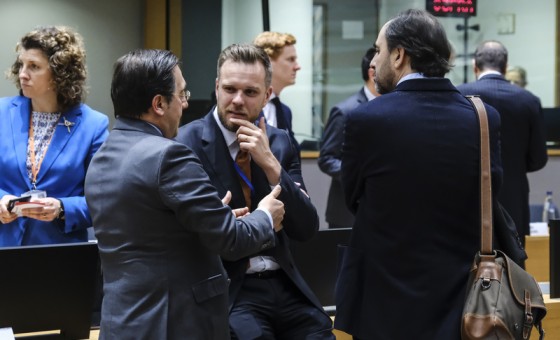On 28 March, after 11 hours of interinstitutional negotiations, the European Parliament, the Council of the European Union and the European Commission reached a provisional political agreement on a regulation on the protection of the Union and its member states from economic coercion by third countries (Anti-Coercion Instrument).
In December 2021, the Commission proposed adopting an anti-coercion instrument that would allow the EU to defend against economic coercion by third countries. The proposal was made precisely when China’s economic coercion against Lithuanian exporters peaked. Thus, Lithuania’s experience became a living example for all EU countries, discussing the need to create a new framework to address the growing problem of economic coercion.
The instrument aims to deter third countries from targeting the EU and its member states with economic coercion through measures affecting trade or investment. While the legislative tool is primarily designed to deter economic coercion through dialogue and engagement, it also allows retaliation with countermeasures comprising a wide range of restrictions related to trade, investment and funding.
Lithuania’s Foreign Minister Gabrielius Landsbergis welcomed the EU interinstitutional agreement, highlighting that the EU had become more potent after agreeing on this vital instrument to deter economic intimidation and defend EU interests: “The EU will now have an instrument to defend against dictators who impose informal sanctions against the EU. Lithuania has stepped up the EU’s legislative process by resisting China’s special trade operation.”
Landsbergis also wrote on Twitter: “To stop dictators bullying the EU with unofficial sanctions, @europarl and all 27 member states have agreed on a new anti-coercion instrumentLithuania pushed to accelerate the process after resisting a Chinese special trade operation. The EU just got stronger”.
The regulation will enter into force soon after its official adoption by the European Parliament and the Council.

